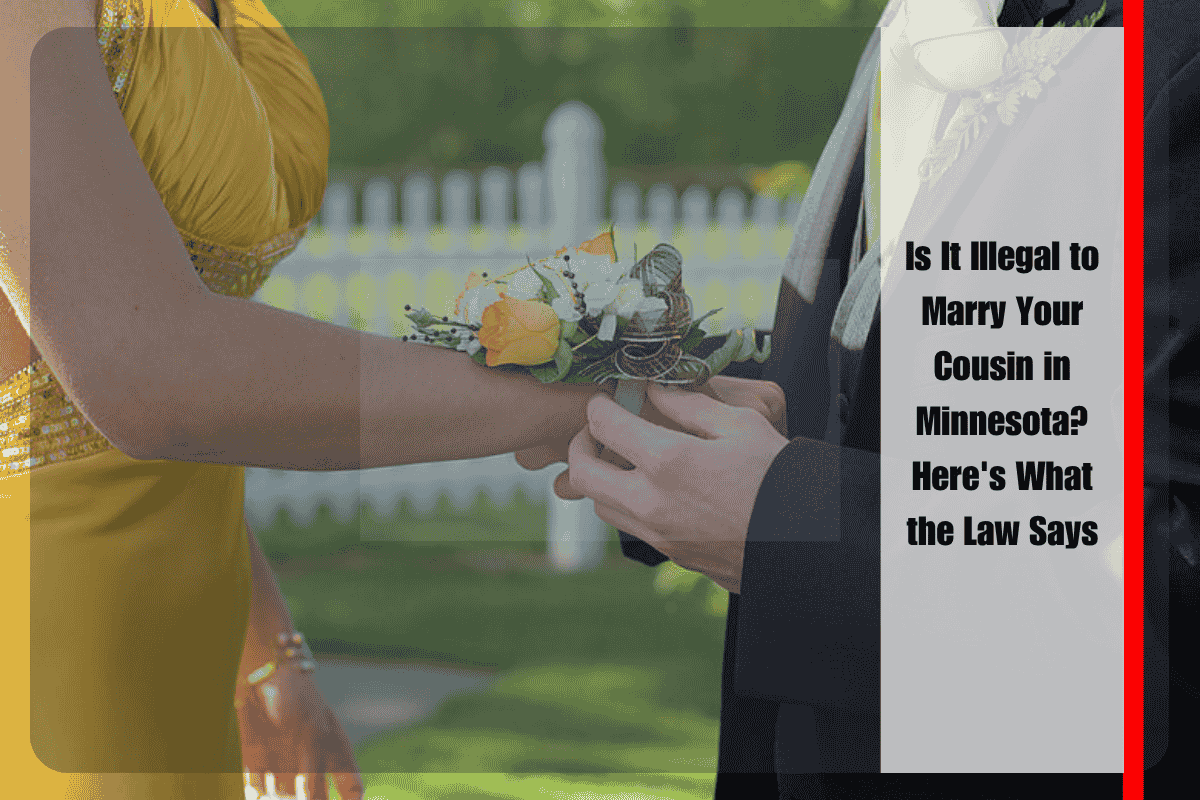In Minnesota, it is illegal to marry your first cousin. The law clearly prohibits such unions regardless of whether the relationship is established by whole or half-blood, or by adoption. Minnesota Statute 517.03 lists the types of relationships that are barred from civil marriage, specifically naming “first cousins” among those who cannot lawfully marry. This prohibition includes all forms of first-cousin relationships, and applies to both men and women equally.
The prohibition on first cousin marriage has been longstanding in the state. The law does not make distinctions based on age, infertility, or whether both parties are consenting adults. The only exception to this prohibition exists for civil marriages permitted by the established customs of aboriginal cultures, which is a very narrow and rarely invoked clause. For almost all Minnesotans, this means first cousin marriage is not and will not be legally recognized by the state.
Minnesota law does, however, permit first cousins to cohabit or have intimate relationships—they just cannot marry legally within the state. Cohabitation and sexual relations between first cousins are not themselves criminalized, but the state draws a firm line when it comes to the legal recognition of marriage. First cousins once removed (the child of your cousin or the cousin of your parent) are permitted to marry according to state law. Second cousin marriages are also legal, as the prohibition is confined to first cousin relationships.
Efforts have been made to reexamine or change these laws. Some legislators and communities, especially immigrants from cultures where cousin marriage is customary, have voiced concerns that the prohibition is unnecessarily restrictive and does not reflect contemporary scientific findings regarding genetic risks. In 2003, a bill was introduced to legalize cousin marriages, spurred in part by advocacy for Somali and Hmong communities, and influenced by research indicating that genetic risks from first cousin unions are generally lower than once believed. Nonetheless, such proposals have not succeeded in changing state law, which remains unchanged and continues to prohibit first cousin marriage for the general population.
From a practical perspective, if two first cousins resident in Minnesota were to travel to another state where cousin marriage is permitted and marry there, Minnesota would not recognize that marriage as valid upon their return. Minnesota’s stance is that marriages entered into in another jurisdiction are invalid in Minnesota if the same union would be illegal if contracted within the state.
For anyone living in or considering moving to Minnesota, it is important to recognize that the state’s laws reflect a cultural and legal consensus against first cousin marriage, with only a slim exception for the customs of aboriginal cultures. This position is enforced both in the issuance of marriage licenses by county registrars and in the recognition of marital status for legal purposes such as inheritance, divorce, or child custody. Legal recognition is not available, and any attempt to circumvent Minnesota law by marrying in another state will not be honored if both spouses are residents of Minnesota at the time of marriage.
Marrying your first cousin is illegal in Minnesota, is not recognized by state authorities, and does not qualify for exceptions outside of specific aboriginal customs. The law is quite clear, and despite periodic discussion about reform, there is no sign the restriction will be lifted in the near future.
Sources
[1] https://mndaily.com/235238/not-using/politics/proposed-bill-would-legalize-first-cousin-marriages/
[2] https://www.insideedition.com/gallery/kissing-cousins-states-where-marrying-your-relative-legal-48234
[3] https://jssmn.com/civil-marriage/
[4] https://en.wikipedia.org/wiki/Cousin_marriage_law_in_the_United_States
[5] https://11points.com/11-state-laws-marrying-cousins-strictest-loosest/












